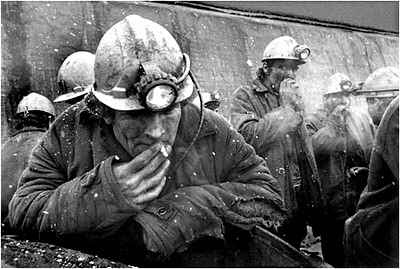
We have a government at present that cannot take decisions. There is nothing odd about this; most of our governments cannot take decisions — and even if they do, they are probably wrong. This may be a cynical outlook coming from someone who does not have to make the decisions. Can I ask a question? What are we going to do to provide us with electricity in a few year's time? We have been humming and hawing about nuclear power for years. The last government and the present have sort of taken a decision to get EDF energy to build some nuclear power stations with German assistance but the contractors are slowly pulling out. The truth is that no one wants to build nuclear power stations any more. And they are quite right. I have been opposed to the building of more such stations for years. Why? Because they are unsafe and present us with a gigantic problem when they need to be shut down and demolished. It is an extreme form of the Titanic problem. This ship was unsinkable but it sank on its maiden voyage. The chances of a nuclear disaster are very small but that disaster could still occur within the next 28 hours. The possibility is small — but not nil — but the consequences are horrendous. That is not a scenario acceptable in any risk assessment.
It is claimed that nuclear power stations give no effluents, are clean and efficient. They are none of these. The first fundamental problem is — what happens if anything goes wrong? No longer can it be argued that nothing will go wrong or that new nuclear power stations will be safer. We need to remember Three Mile Island, Chernobyl and Fukushima. All of these were grade one disasters that needed massive evacuation of very large areas of surrounding land, towns and cities. After Fukushima it was thought at one stage that the whole of Tokyo may have had to be emptied. It was not, of course, but primarily this was due to the efforts of workers in the power station who allowed themselves to be subjected to horrendous levels of radiation in order to do the work necessary to subdue the reactors. The situation there is still not 100% safe and the reality is that the most contaminated areas will not be usable for a few thousand years. Chernobyl was even worse. Already many men who worked to contain that disaster are dead; Many more will die prematurely and like Hiroshima the knock-on effects of radiation will be felt in the community for years to come. If a conventional power station suffered a major catastrophic failure, emergency services and teams of engineers could get to work cleaning up the mess immediately and within a relatively short time the power station could be back in operation. There would be no nuclear fall-out to deal with; no land contaminated for a thousand years, etc.
Nuclear power stations present a frightening risk of terrorist actions and this introduces another inestimable factor — which would not apply to a conventional system.
But, even assuming all these matters could be overcome, there remains the matter of disposing of the waste. At present it is stored and so it will be for years to come until we can load it onto a rocket and fire it into the sun.
I read an article today which told me that last year coal was the energy source that provided for 30% of the world's energy — up from 25% just a few years ago. And last month Japan shut down the last operating nuclear power station. The government wants these stations to re-start but since Fukushima, every time a nuclear power station is shut down there has been substantial local resistance to it ever being re-started. This is not likely to change. Th beans and sandals brigade will oppose electricity generation with coal but they will oppose everything except — perhaps — windmills.
This country has problems with energy supplies as a direct result of continuously incompetent governments. We had about 400 years supply of coal buried under the British Isles. How much of that coal is now recoverable, I do not know. We mine very little of it because in the 1980s we had a prime minister, Margaret Thatcher, who shut the coal mines because she was determined to quash the coal miner's union headed by Arthur Scargill. She decided that we could generate electricity by burning natural gas. That was another disastrous decision. It is great to generate electricity using this premium fuel but it wasted a precious resource. We are now in the incredible position of generating about 35% of our electricity with coal and that coal is imported from the USA and Poland. Our own resource of North Sea gas is now almost all gone and we import gas from Norway, Russia and the Middle East. Sooner or later we will have to re-open the coal mines just as we are now having to try to resurrect our manufacturing industries — also chucked down the drain by various governments — with one notable exception. When Rolls Royce got into deep trouble in the 1970s, a Tory prime minister, Ted Heath, nationalized the company and kept it afloat until it could be re-privatized to look after itself again. It is now a thriving business and one of the most successful in Britain. When Mrs Thatcher was destroying our coal industry, we should have been spending money on research to be leaders in all modern methods of burning coal and dealing with carbon dioxide emissions. But we did not and we are not and, yet again, we will come to regret it.
/





No comments:
Post a Comment